Occasional spills will happen whenever you're filling your vehicle at the pump. You're probably aware of the hazard that diesel fuel poses to the environment when spilled, but maybe you're also concerned about whether or not it can impact your paint job. We researched how this fuel interacts with paint so that you'll know for sure what it will do.
If left on the surface of the paint long enough, diesel fuel will damage the coatings that protect your vehicle's paint job. It should be wiped away as soon as possible to prevent any damage.
Now that we know that diesel fuel will damage a vehicle's paint, we'll take a look at how this fuel interacts with the surface of your car or truck. You might also be wondering if the rain will wash away diesel or how long it takes diesel to evaporate. For the answers to these questions and more, read ahead in this post to see what our research has uncovered.
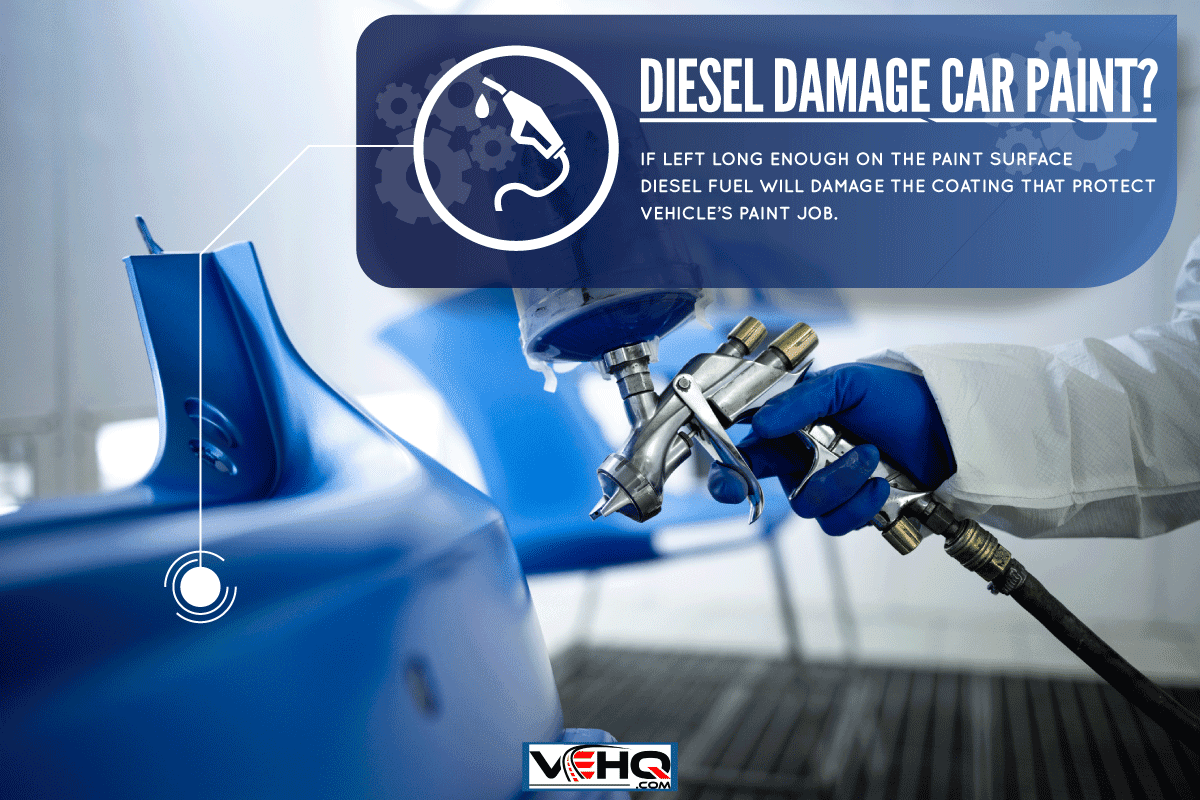
How Diesel Fuel Interacts With The Surface Of A Vehicle
You might not be aware, but the paint job on your vehicle has layers of protective coatings applied to it to keep it a bit safer from damage.
The vast majority of new vehicles produced over the last 15 years have a clear coat applied after the body has been painted. This coating will minimize damage from very minor scratches and nicks from small rocks and keep the paint from being exposed to corrosive substances.
This clear coating is not impervious to everything, however. Brush by a tree branch or a bush too hard and you'll find a scratch that penetrates the coating. Certain fluids will also eat away at the coating over time. One of the most common harmful fluids that any vehicle is exposed to is fuel.
Diesel fuel evaporates quickly but leaves behind chemicals that will eat away at the clear coating meant to shield your paint. Leaving the fuel on the paint will rid your paint job of its protective layer and leave a stain. These stains are a real pain to remove and will leave the body of your vehicle unsightly.
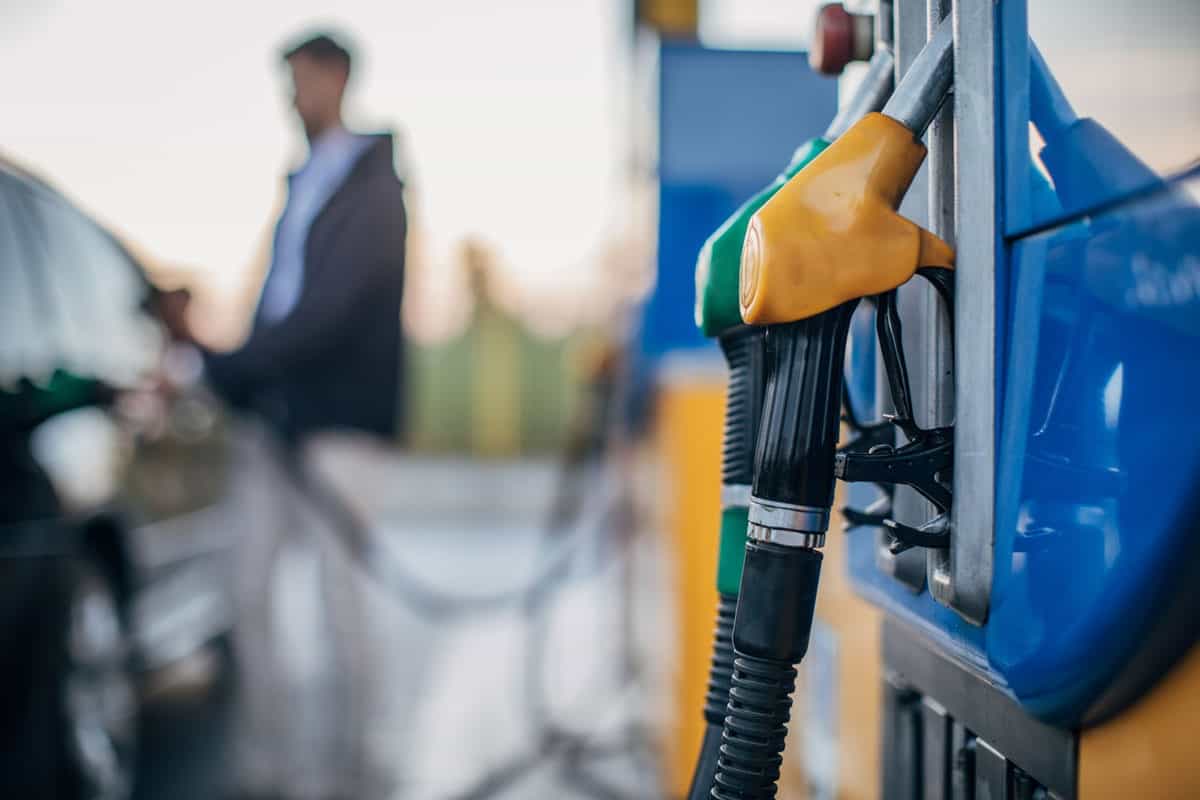
As Much Damage As Diesel Will Do To Your Paint, Gasoline Is Much Worse
You are bound to spill a bit of fuel on your vehicle at some point or another. Overflows happen, automatic shutoffs can fail, and sometimes you're just in too big of a hurry and end up pulling the nozzle away when it's still dripping fuel.
Diesel fuel certainly harms your protective clear coat and eventually the paint, but gasoline is much worse. This fuel is much more corrosive than diesel. It will eat away at coatings faster and leave a much more noticeable stain on the side of your car or truck.
Keeping A Rag Handy For Accidental Spills Is A Great Idea
We recommend keeping an old rag handy in your trunk or tucked inside a compartment of your truck. This will allow you to quickly wipe away any drops of fluid you might have spilled when refueling.
And if you don't have one, paper towels will do the trick. As long as the fuel is absorbed and wiped away before it dries, you will save your clear coat and paint job from damage.
Does Rain Wash Away Diesel Fuel?
You might be aware that gasoline and water do not mix. Gasoline is less dense than water, which is why you will see it float to the top of a waterway if there is a spill. Because gas is thinner and more refined than diesel, it is less dense. Even though diesel is heavier than gas, it is still lighter than water.
This is why having water in a fuel tank can cause issues. The water settles to the bottom but is sucked into the fuel line when the engine is running, causing the vehicle to operate erratically. The drastic difference in the density of fuel—whether gasoline or diesel—and water is why rain will not wash away either one.
This is also why you should never attempt to clean a fuel spill with water. All this will do is smear the fuel around and make more of a mess. Spilled fuel needs to be cleaned with an approved cleaner or by using something to absorb it before it evaporates.
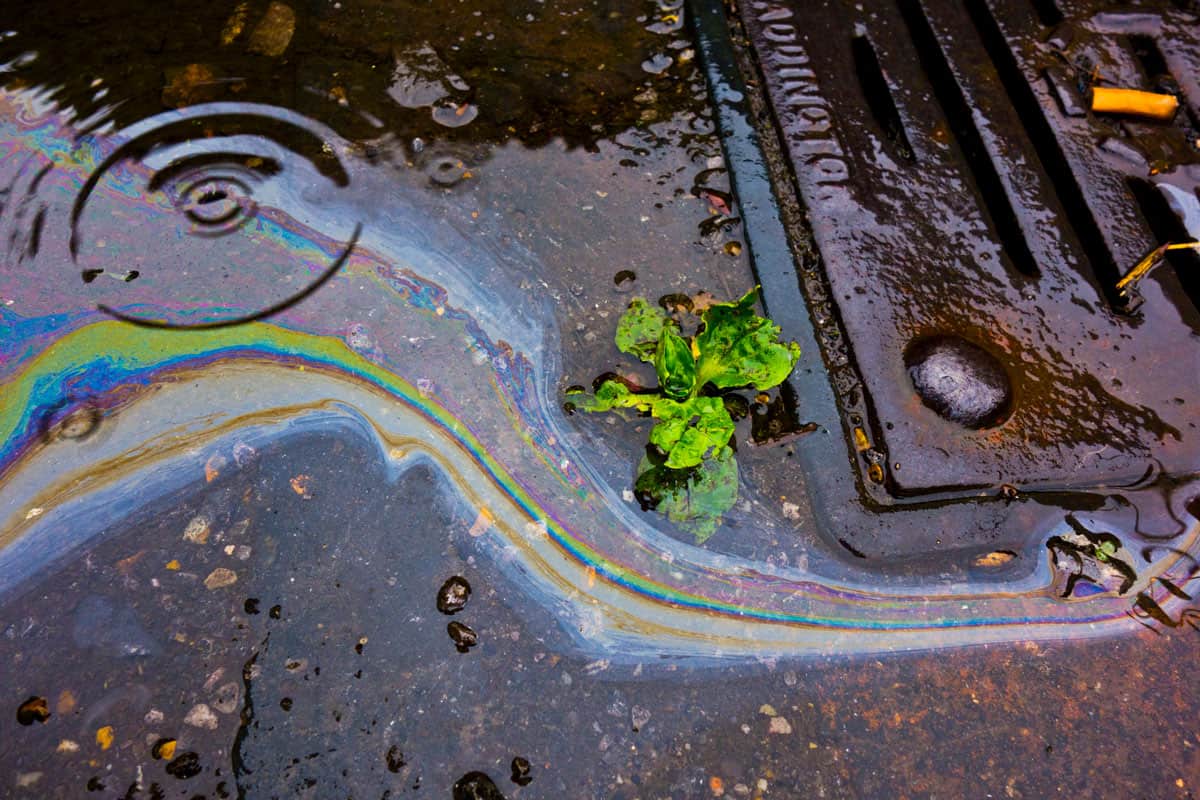
How Long Will It Take Diesel To Evaporate?
Gasoline will evaporate rather quickly, with small sprays and drops disappearing in 10 minutes or less. As diesel is less refined and contains more detergents than its fuel counterpart, you can expect it to take more time to do so.
Diesel is heavier than gasoline, too. This will also decrease the amount of time it takes to fully evaporate from a solid surface.
The amount of time it will take for diesel to evaporate will depend on how much is spilled and what the temperature and humidity are. But if it's small spills on the side of your vehicle from the fuel pump, they will generally take an hour or more.
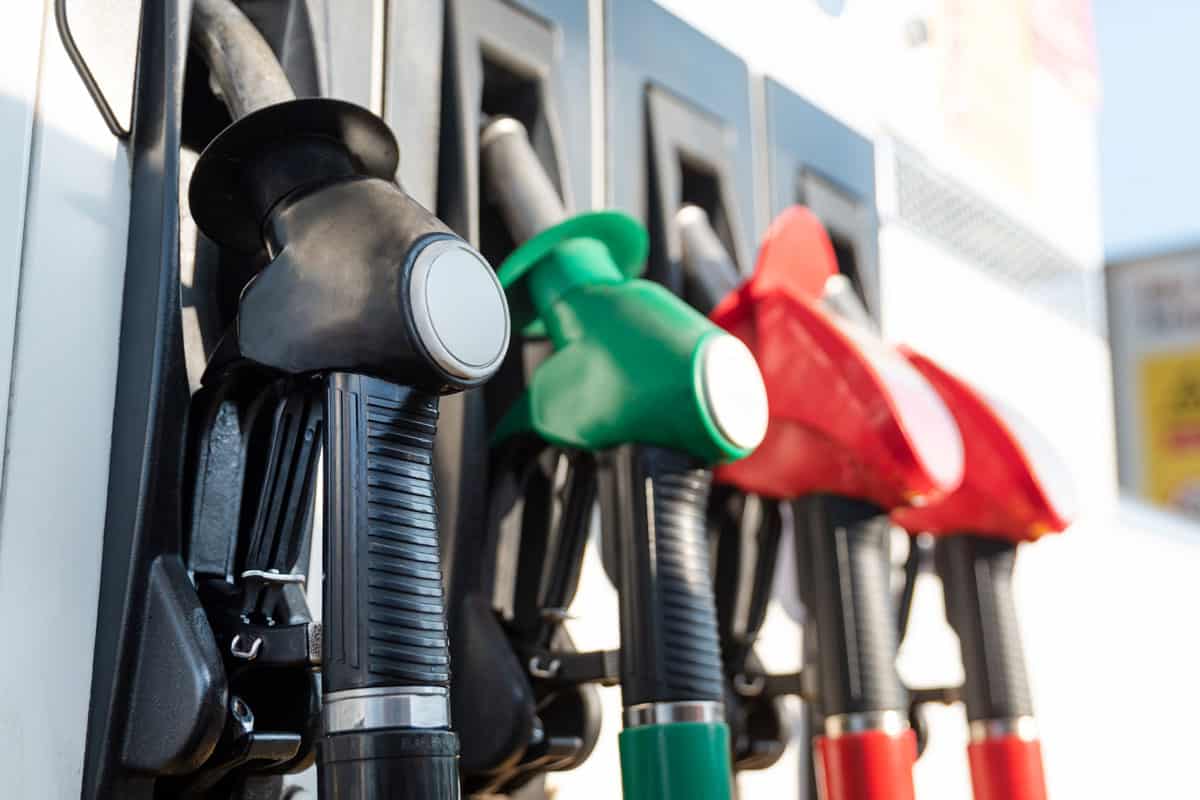
How Long Will Diesel Fuel Last In A Fuel Tank?
Because of the chemical makeup of diesel fuel, you can expect it to last a great deal of time when stored. If the climate is right and the container that holds it is secure, diesel can be perfectly usable after even 12 months of storage.
But that doesn't mean that it will last this long in the fuel tank of your vehicle. Existing impurities in your tank can and will slowly cause some chemical reactions in the fuel that will begin to break it down. After a couple of months of sitting idle in a truck's fuel tank, expect the fuel to not be as efficient.
Keeping fuel in a vehicle that won't be running for a long time will damage it in many ways. Over time, the fuel tank will begin to corrode, though this will take a considerable amount of time.
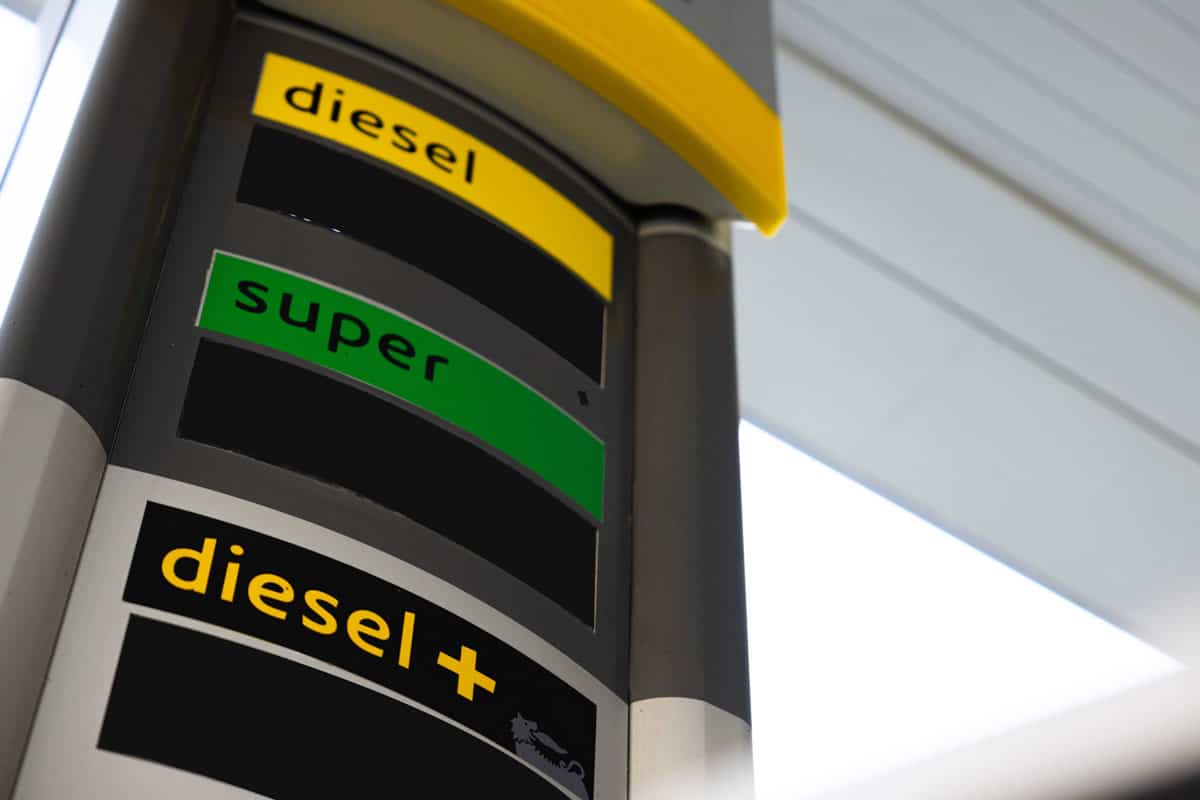
Which Lasts Longer, Gasoline Or Diesel Engines?

While diesel fuel tends to be more expensive than gasoline, there are a good number of advantages of having your vehicle burning it. Not only are diesel engines more fuel efficient but they also tend to last a lot longer than engines that run on gasoline.
The average gasoline-powered vehicle gets about 150,000 miles, with a bit more out of trucks and SUVs. But their diesel counterparts will get considerably more, with many topping over 300,000 miles.
Rather than use spark plugs to ignite the fuel, a diesel engine uses an extreme amount of compression. This process is much more favorable to the engine's longevity, which is one of the reasons these vehicles last so long.
It's not uncommon for tractor trailers to get even more miles on their diesel engines. These vehicles can be expected to top 700,000 miles if they are properly maintained.
Final Thoughts
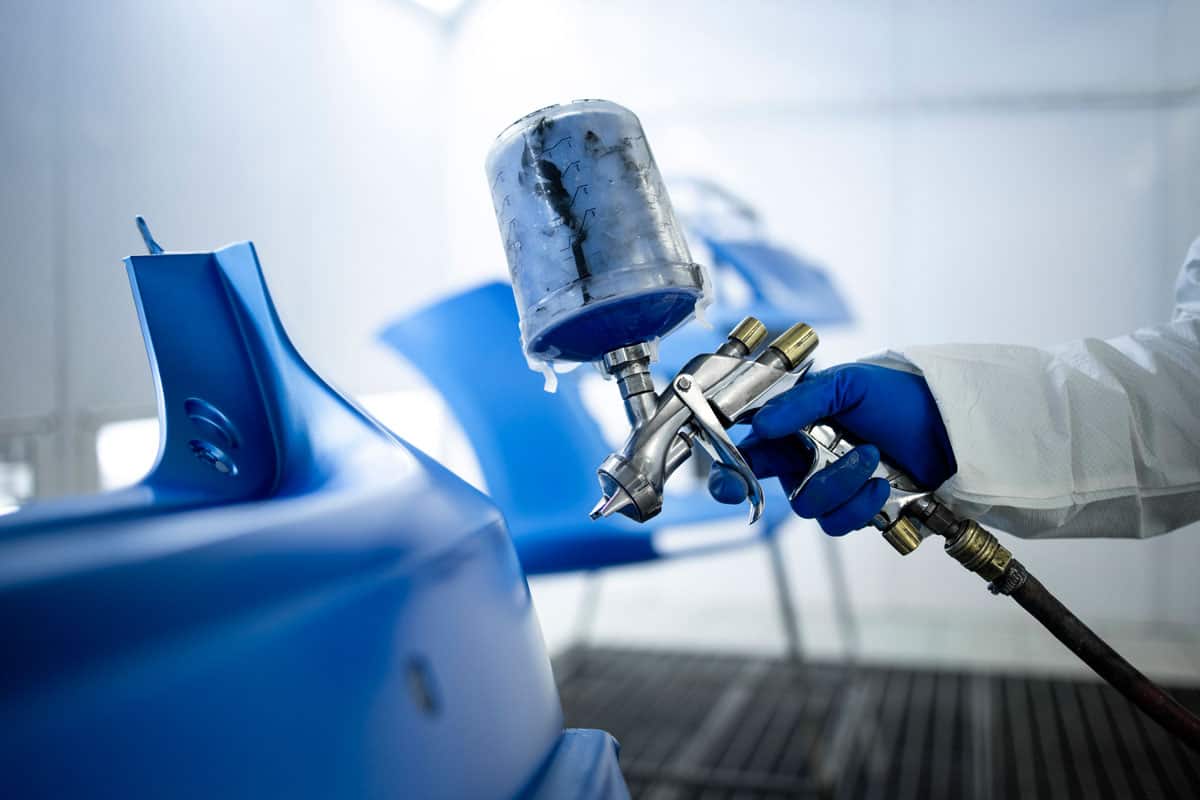
Diesel fuel can eat away at the protective clear coating that has been applied to your vehicle's paint. Not wiping spilled fuel away from the vehicle's surface will eventually leave a stain behind that is difficult to remove.
Always use an absorbent cloth or material to clean a fuel spill, and never apply water to assist in the process.
We hope this post on the effects of diesel fuel on car paint answered all of your questions. For additional helpful information, we recommend reading the following posts:
How To Remove Glue From Car Paint [Inc. Gorilla Glue And Superglue]
